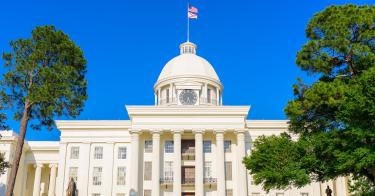My friend Sarah Knafo, a formidable French member of the European Parliament, recently introduced me to a word that has haunted my thinking about Alabama’s governance: culpabilité.
The French use it to describe something deeper than guilt: a paralyzing, institutionalized sense of collective shame that prevents forward motion even when the path ahead is clear. Alabama, which bore witness to both the worst depravities and the most luminous triumphs of the Civil Rights Movement, suffers acutely from this condition.
The paradox is this: Alabama, whose cities became the stages upon which moral courage confronted injustice—Montgomery, Birmingham, Selma—now falters in applying the enduring truths that once animated its redemption: principles grounded in Scripture, natural law, and Aristotelian virtue.
The left has appropriated the moral vocabulary of civil rights while abandoning the ethical framework that sustained it, replacing appeals to justice with the pursuit of power, militant secularism, and racialized identity politics. Conservatives, for their part, have tried to reclaim those timeless foundations, but Alabama’s Republican supermajority often governs with the timidity of a freshman senator facing his first tough vote.
>>> Does Regions Financial Stand for Alabama Values, or Undermine Them?
Why the hesitation? Part of the answer lies in that French word: culpabilité. Traumatized by its shameful history of racial oppression, Alabama’s political class has internalized a reflexive fear of being accused—no matter how unfairly—of regression. Every serious reform is filtered through a dread of national disapproval.
The Southern Poverty Law Center, headquartered with exquisite irony in Montgomery, has spent decades weaponizing the language of civil rights to silence dissent and stigmatize conventional conservatism. Yet the original Civil Rights Movement was profoundly conservative in its philosophical foundations.
Martin Luther King Jr., though sympathetic to socialist economics, drew his moral authority not from critical theory but from the Declaration of Independence and Scripture. He appealed to “the majestic heights” of natural law, to self-evident truths about justice and human dignity. The movement’s intellectual architecture rested on the Thomistic idea of a moral order grounded in reason and purpose—telos, as Aristotle called it. When King spoke of “the arc of the moral universe” bending toward justice, he echoed Augustine and Aquinas, not Marx or Marcuse.
That inheritance should guide Alabama still. A prudent, genuinely conservative government would ensure that pension funds serve pensioners, not political fashions; that schools cultivate wisdom, not ideology; that state sovereignty means something more than ceremonial deference to Washington.
Scripture teaches that freedom and responsibility are inseparable. Natural law holds that human dignity flows from our rational nature and that strong families form the bedrock of society. These principles guided the Civil Rights Movement’s most noble aims. They should animate Alabama’s governance today.
Instead, too many leaders confuse penance with paralysis, and symbolic gestures with substance. Alabama talks like a conservative state, but often legislates like a cautious bureaucracy. The result is drift: a politics of apology masquerading as prudence.
>>> The Social Costs of Inflation
What the ancients called magnanimity—greatness of soul—is needed. Alabama must acknowledge its past without being imprisoned by it. It must honor the Civil Rights Movement not just by canonizing it in marble but by practicing the virtues it proclaimed: courage, justice, faith and prudence. That means protecting families, guarding pensions from ideological capture, defending free enterprise, and restoring education as a pursuit of truth, not indoctrination.
The Civil Rights Movement triumphed not because it was radical, but because it was rooted in the permanent things – truths older than the Republic, anchored in Jerusalem and Athens, transcending fashion and time. Alabama can honor that legacy only by governing in that same spirit. Anything less is culpabilité: paralysis dressed up as virtue.
Meanwhile, the left embraces absurdities that would make Orwell blush: men in women’s sports, “book banning” accusations against librarians with finite shelf space, politicians who enter office poor and leave rich while denouncing the wealthy, “equity” programs that require discrimination to achieve “justice.” The movement that once fought racism now traffics in its mirror image.
So, the question remains: will Alabama’s leaders find the courage to govern by truth while others abandon it? King understood that the arc of history bends only when hands grasp it firmly and pull. Alabama’s hands have hovered too long at its sides.
The state that once changed the nation’s moral direction can do so again—but only if it shakes off its guilty conscience and reclaims the moral confidence of its own history. Alabama doesn’t need to atone forever. It needs to lead.
This piece originally appeared in 1819




